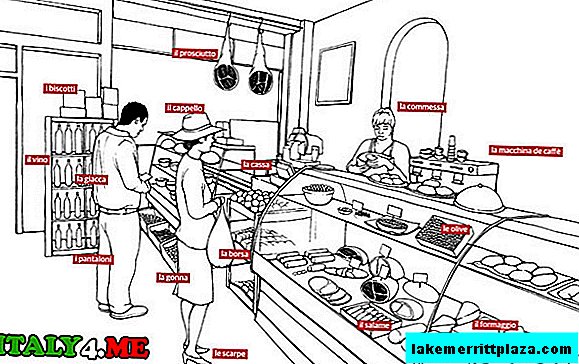In the first place, as expected, English, in the second French, and in the third - Spanish. The Italian language is in the lead thanks in large part to the famous Italian cuisine
The list of languages studied in the world includes more than six thousand names (!), Arranged in strict sequence of universal classification. It will not be news to anyone that English is in the first place. In the second position - French, and in the third - Spanish. But the fact that the fourth was the Italian language is curious. Dante's dialect bypassed Chinese, Japanese, German. Undoubtedly, this causes a sense of pride among Italians.

Not in vain on Tuesday June 17, 2014 in Rome in the Palazzo San Macuto, a training conference was held on the Italian language as a tool to promote Italy abroad. The event was hosted by the Icon community of 19 Italian universities and in Pisa. Even before the conference, Icon Director Mirko Tavosanis described its goals: “We will analyze our language as a factor in the development of our country, including from an economic point of view. And we will try to contribute our ideas to strengthening the position of the Italian language in the world "
What is the reason for the success of the Italian language? “I think the popularity and widespread dissemination of our speech follows from many factors,” Tavozanis explains. “Firstly, Italian culture attracts foreigners. And not only Dante, but also modern writers. People equally like Italian fiction, poetry and journalism. Further, the musicality of the sound of Italian speech and its obvious poetry are of great importance.
Well, it was not without Italian cuisine: especially recently it has prompted many foreigners to study Italian dictionaries, at least in order to read excellent recipes. "

According to Tavozanis, the love of the Italian language should be the impetus for a significant cultural revival. "Everyone who is involved in promoting the Italian language and culture abroad feels the need for a deep update of the entire system," says the professor. “We need to develop a new policy that will take into account the changing conditions of the language space and the competition of cultures in a globalized world. Such a policy will allow us to appraise the potential of the Italian heritage and establish the interaction between the promotion of language and culture and the development of the country's economy. For example, foreign students, students in Italy in Italian will guarantee future successful relationships with senior classes in many countries with rapid economic development. "
The Icon Community (Italian Culture on the Net, Italian Culture on the Net) brings together 19 Italian universities that popularize Italy's language, culture and photographs around the world with Internet technology. On the website www.italicon.it, international students and citizens living abroad can choose for themselves a three-year training course in Italian language and culture, a master's course or one of the many courses offered in Italian.








